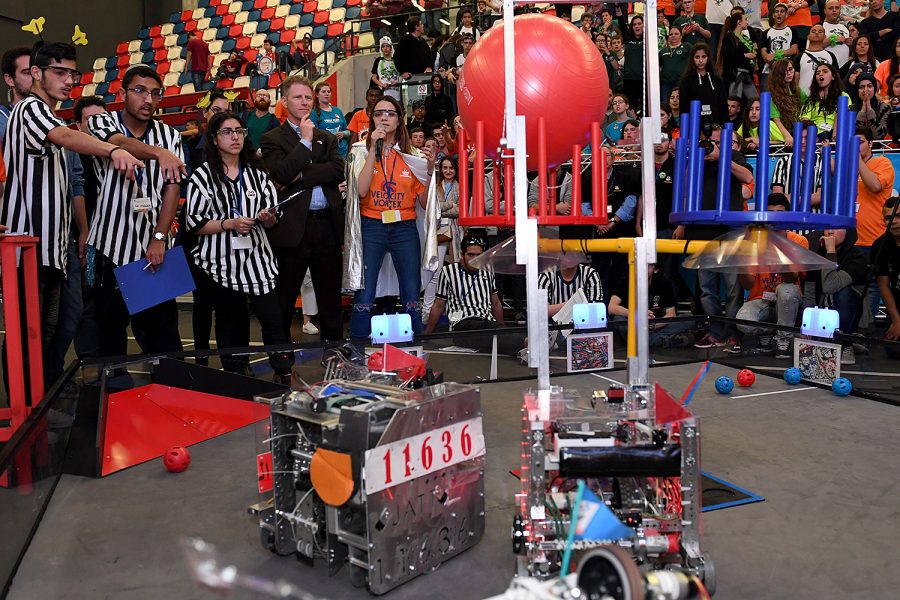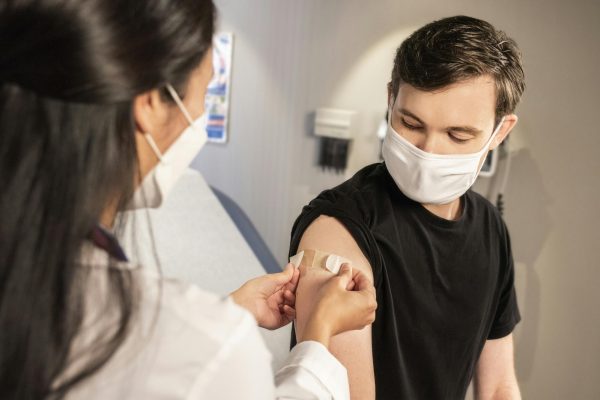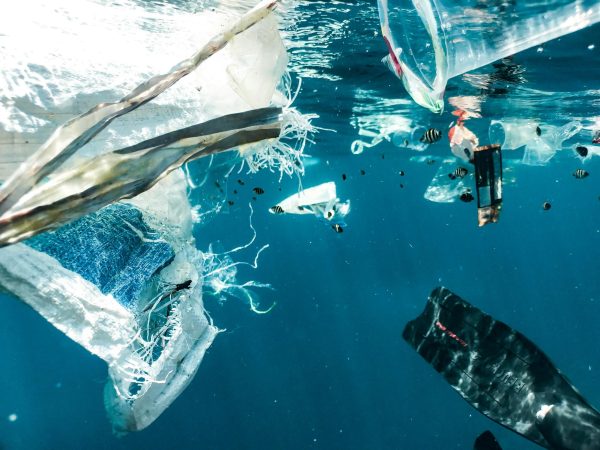Code, Design, and Compete With Your Own Robot!
Following the Hessen guidelines (with additional FIS safety restrictions in place) FIS has opened the school and is expecting normal attendance policies for campus learning for the 2020-2021 school year. Not only regular classes, but clubs have also started to have in-person meetings. Like many other clubs, the Robotics Club started their first session earlier this year, on September 11th.
Robotics Club members attend the meetings held in the Makerspace (room 276) every Friday after school. All members are encouraged to freely participate in any discussions. Usually, team members come together to make a solid plan for their robot before proceeding to actually build them. They do not just construct random robots, however. Their plan is to participate in FIRST Tech Challenge (FTC).
FTC is a robot competition founded in 2004. In this challenge, team members design, build and code their robots to complete certain tasks. Some common tasks include automatically finding a block, moving it to a certain location, and throwing it to a goalpost. Robots are built from a reusable platform and can be coded using diverse Java-based programming. Through this competition, team members are expected to develop their computational thinking abilities and block coding skills. More to this, they can enhance their creativity and problem-solving skills by undertaking new challenges.
Not all club members get the chance to attend the FTC competition, however. Only students who have actively participated in the robot construction are chosen to go to the actual competition. Club members can make any needed components of their robots by 3D printing and begin constructing them with other club members. For members who might prefer to learn how to code rather than to build the robot, FIRST Tech Challenge website provides resources of Java programming tools with which they can practice. Currently, there are two students working on the coding part.
There are two different types of programming tools that can be used on the FTC website: Blocks Programming Tool and OnBot Java Programming Tool. Blocks Programming Tool is a graphical tool for programming a robot. It is the fastest and easiest way to start programming. Under “Programming Resources” in the official website, there are lots of useful resources, such as ‘Blocks Programming Manual’, Blocks Programming Autonomous Mode and video tutorials on them. On the other hand, OnBot Java Programming Tool is a browser-based Java development tool. It allows programmers to program in Java without installing Android Studio, which is used to create text-based programs for the robots. If you want to use Android Studio, you can download it from the official website.
For 3D printing, students learn how to use Autodesk Fusion and Original Prusa Drivers. Doing 3D printing is not necessary, but it enables you to make robots without the restriction of the components. Last year, our team made a component for our robot, which was a phone case that could be attached to the robot so that it could hold the phone. By doing this, we didn’t have to worry about finding the exact size of the phone case.
So, what’s so special about Robotics Club and FTC? There is so much to talk about. All team members get the chance to choose what they want to participate in. Existing members will kindly teach new members how to use all the materials. Teamwork skills then come in. Additionally, team members can learn computational thinking methods and enhance their creativity as well as their problem solving skills.
Joining the Robotics Club will serve as an interesting introduction to robots, AI and engineering. Furthermore, there are numerous scholarships available. Although FTC does not administer or fund any scholarship within the program, many scholarships are offered by different providers, including a variety of universities. Currently, there are about 200 scholarship providers and $80 million available for scholarships.
Code, Design, and Compete with your own robot for FIRST Tech Challenge! This will be a wonderful opportunity for you to develop your interest in computer science, mechanical engineering, or electrical engineering.





